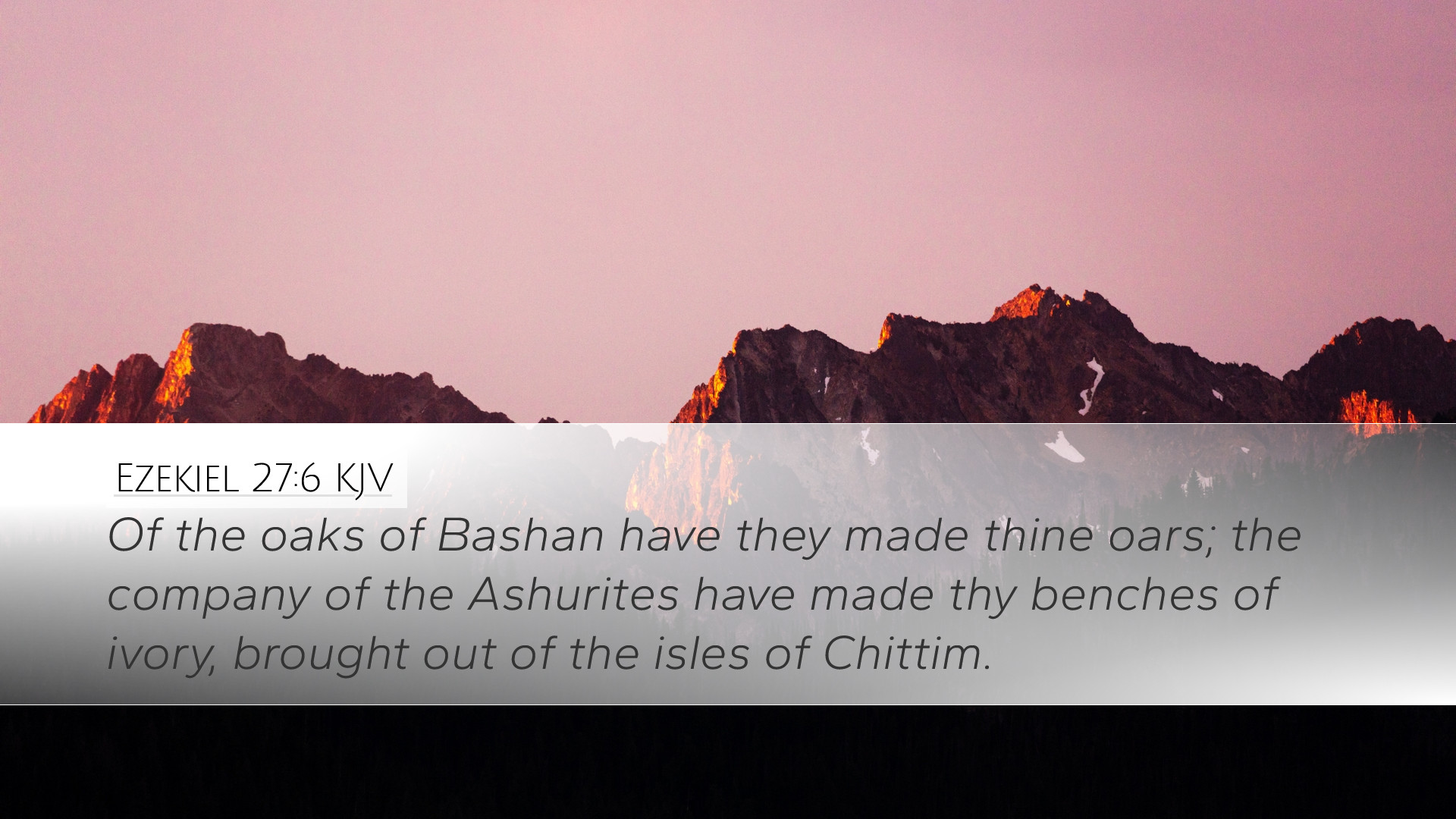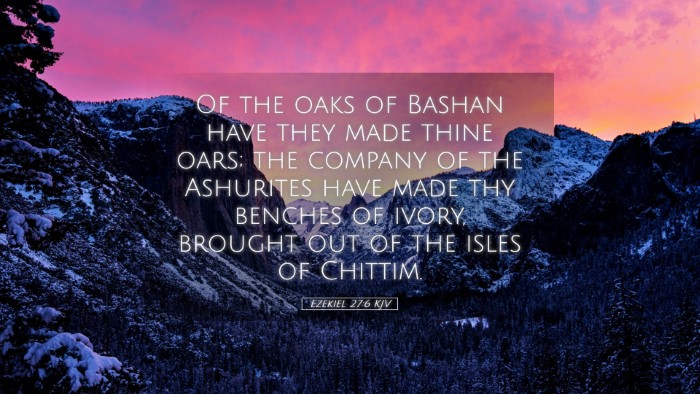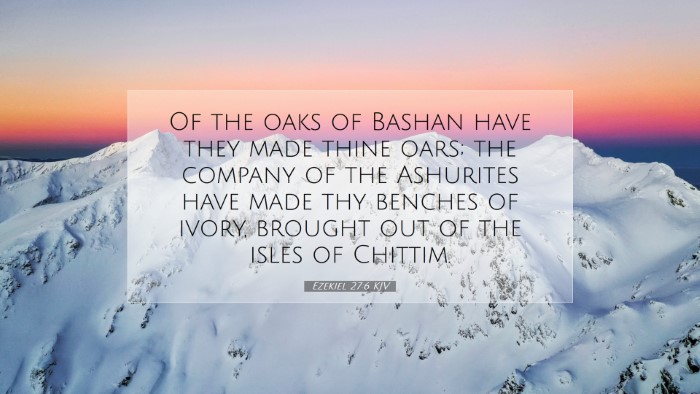Ezekiel 27:6 Commentary
Bible Verse: "Of the oaks of Bashan have they made thine oars: the company of the Ashurites have made thy benches of ivory, brought out of the isles of Chittim."
Introduction
This verse is part of a larger oracle against Tyre, a city renowned for its wealth and seafaring prowess. The use of specific materials and geographic references in Ezekiel 27:6 serves to enhance our understanding of Tyre’s commercial empire, demonstrating the extensive network of trade and influence that characterized this ancient city. Through the insights of renowned commentaries, we can derive significant theological and practical applications from this passage.
Historical Context
The historical context of Ezekiel is critical for understanding this verse. Ezekiel prophesied during the Babylonian exile, a time when the people of Israel were grappling with loss and identity. The oracle focuses on Tyre, whose economic practices and pride are highlighted as a cautionary tale for Israel. Tyre, with its grandiose ships, was a symbol of affluence and autonomous strength, which ultimately led to its downfall when judged by God.
Material Significance
The mention of "the oaks of Bashan" speaks to the quality and rarity of the materials used in the construction of the oars. Bashan was known for its fertile land and strong timber. Matthew Henry notes that the quality of material one chooses often reflects the nature of the enterprise itself, indicating Tyre’s desire for excellence in all its ventures.
In addition, the reference to the "benches of ivory" made by the Ashurites signifies luxury and opulence. Albert Barnes emphasizes that ivory, being a precious material, implies that Tyre engaged in trade that highlighted its wealth. Such adornments would have been a source of pride but also a potential stumbling block, leading to decadence and moral decline.
Theological Implications
At a theological level, this verse raises questions about idolatry and dependencies. The intricate description of Tyre's maritime sophistication and material wealth can be interpreted as a metaphor for spiritual pride and self-sufficiency. Adam Clarke suggests that Tyre's splendor is analogous to contemporary human pride and the belief in one's own strength apart from God. Ezekiel’s prophecy serves as a reminder that all nations and individuals are ultimately accountable to God.
Lessons for Today
This passage provides several lessons for modern readers:
- The Danger of Pride: Just as Tyre descended into ruin because of its hubris, modern individuals and churches must guard against pride in their achievements.
- Stewardship of Resources: The luxurious materials mentioned highlight the responsibility that comes with wealth. Believers are called to use resources wisely for the glory of God rather than for self-indulgence.
- Interconnectedness of Nations: The diverse contributions to Tyre's naval fleet serve as a reminder of the interconnected nature of human societies. This can lead to both cooperation and conflict, which are critical considerations in today's globalized world.
Conclusion
Ezekiel 27:6 provides profound insight into the pride and eventual downfall of Tyre, underscoring the importance of humility and reliance on God. Through the examination of the materials that contributed to Tyre's fleet, we gain a clearer understanding of the nation’s identity and the folly of forgetting one’s dependence on divine sovereignty. If contemporary readers take these lessons to heart, they can navigate the complexities of modern life grounded in faith and stewardship.


